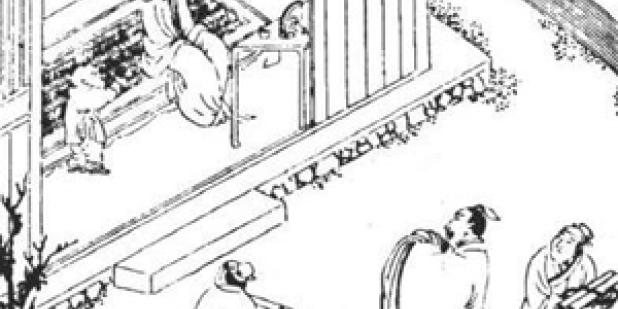Join us for a free one-day workshop for educators at the Japanese American National Museum, hosted by the USC U.S.-China Institute and the National Consortium for Teaching about Asia. This workshop will include a guided tour of the beloved exhibition Common Ground: The Heart of Community, slated to close permanently in January 2025. Following the tour, learn strategies for engaging students in the primary source artifacts, images, and documents found in JANM’s vast collection and discover classroom-ready resources to support teaching and learning about the Japanese American experience.
Visualizing Self-Inflicted Violence in late Imperial Chinese Religions
The Center for East Asian Studies Center at the University of Chicago presents a talk by Jimmy Yu.

Jimmy Yu, Assistant Professor, The Florida State University
This paper examines two distinct practices of blood writing and female chastity mutilation and suicide in the sixteenth and seventeenth centuries China. Thousands of men and women during this time exercised the instrumentality of their bodies to accomplish different goals. Nearly all gazetteers in every part of China produced during this time had sections devoted to pious children and chaste widows who engaged in self-inflicted violent practices. Graphic illustrations of these practices can be found in religious tracts, illustrated books, popular literature, fiction, and poetry during this period. Why did Buddhists and non-Buddhists slice open their tongues and fingers to copy scriptures with their blood? Why did young, chaste widows cut off their noses to permanently undermine their eligibility when forced to remarry? Why were these practices so alluring that writers and illustrators enthusiastically represented them? Visual and textual representations of self-inflicted violence both validate and complicate the supposed sanctity of those practices; they were multiple ways of reading acts of self-inflicted violence that contributed to their popularity in late imperial China. This paper provides a window into the lives of specific performers, their social-cosmic relationships, their conceptions of the potentials of the human body, their practices that affected the world around them, and the ways in which these practices were visualized and represented.
Featured Articles
Please join us for the Grad Mixer! Hosted by USC Annenberg Office of International Affairs, Enjoy food, drink and conversation with fellow students across USC Annenberg. Graduate students from any field are welcome to join, so it is a great opportunity to meet fellow students with IR/foreign policy-related research topics and interests.
RSVP link: https://forms.gle/1zer188RE9dCS6Ho6
Events
Hosted by USC Annenberg Office of International Affairs, enjoy food, drink and conversation with fellow international students.
Join us for an in-person conversation on Thursday, November 7th at 4pm with author David M. Lampton as he discusses his new book, Living U.S.-China Relations: From Cold War to Cold War. The book examines the history of U.S.-China relations across eight U.S. presidential administrations.




